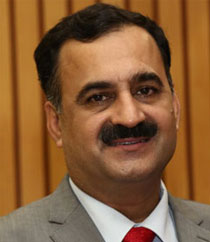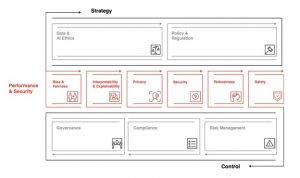“I’m surprised that WhatsApp has done this even though India is their largest market. Effectively this means that WhatsApp, apart from sharing personal data, also discloses your transaction-associated information, which means including your credit card number, your debit card number, and your bank details. At the same time, they will share the IP address of users. It’s a very perilous situation, especially in a country that lacks a strong legal ecosystem around cyber laws and data security. Such policy changes can upsurge the probabilities of misusing users’ data by anti-social elements. I strongly believe that people should count on more secure platforms such as Signal and Telegram for their messaging needs now.”
“This policy change will force users to re-think their use of WhatsApp. WhatsApp users need to change their usage patterns, and if possible, find other messaging platforms that have stricter data privacy policies. I’ve been using WhatsApp since its inception for virtually every aspect of my conversations. But with new integration and privacy policies, I plan to filter my conversations, particularly regarding my banking details. WhatsApp and Facebook should stop taking people for granted.”
If you are a WhatsApp user, it is quite likely that you would have seen a notification from the messaging application that it has updated its privacy policy. WhatsApp has said that it will inevitably begin sharing users’ data with Facebook in a month’s time. According to WhatsApp, all WhatsApp users need to read and accept the new terms before 8 February to continue using its services. Those who do not accept the policy will have to give up access to their accounts.
The revised policies will allow WhatsApp to share various forms of user data with the Facebook platform. What is more concerning is that the data could be accessed by multiple third-party applications that a WhatsApp user may use on Facebook.
While the cross-platform messaging solution remains end-to-end encrypted, which implies no one can access the content of WhatsApp’s messages and calls, the new policy means sharing a host of critical user information. It includes information about a user’s location, IP address, mobile operator, timezone, phone number, and receipt of a Facebook or WhatsApp account. Additionally, conversations associated with business accounts will now be shared with Facebook.
A step change
The social media giant has backtracked from its earlier stance as an advocate for user privacy. One must recall that in February 2014, at the time of WhatsApp’s acquisition, the US-based Facebook maintained that it would keep the messaging company autonomous, discarding any overlap concerns with Facebook or Messenger app.
That apart, Facebook’s past record, when it comes to user privacy, has been far from stellar. The social-media giant has often been accused of surveillance and data-mining by internet watchers.
In early 2019, data of 49 million Instagram users and 419 million Facebook users were disclosed. In 2020, another hacking scandal erupted where cybercriminals leaked personal details of 267 million Facebook users. As per media reports, the leaked database was available for sale on the Dark Web without any password for just under $600, intensifying concerns around SMS spam and phishing.
The business case for new-alternatives
Facebook-WhatsApp integration may not be brand new since WhatsApp had been in one form or the other was sharing user information throughout its corporate family. However, compared with what has happened previously, the user does not have the option of not sharing his personal data.
There is no doubt that the new WhatsApp policy will dilute users’ privacy and trigger intense debate around data security and finding new alternatives to the social messaging app.
The question is: should users search for a more secure alternative to WhatsApp? At present, there are various alternatives such as Telegram, Signal, Snapchat, and Hike, for Indian users. Telegram has an upper edge explicitly since it was developed to contest WhatsApp’s dominance and has already gained a substantial presence in the Indian market. It also claims to have the multi-data center infrastructure and encryption policies superior to WhatsApp.
“Use signal,” Tesla Founder Elon Musk had tweeted in response.
Use Signal
— Elon Musk (@elonmusk) January 7, 2021
Better World has designed a quick survey, aimed at garnering a consolidated view of users’ response to the policy change announced by WhatsApp.
Please click here to take the survey.
Your participation matters. On the survey’s completion, Better World will share the link to the report
“This policy change has the potential to trigger a longer-lasting debate than being envisaged now. It raises a fundamental question: does a service provider have the right over user data just because it is being shared or stored with the platform? The ramifications could be wide and deep, and regulators will likely step in to redefine the finer contours of privacy.”
“Given the history of privacy breaches faced by Facebook, it is understandable that WhatsApp users should get concerned about sharing their personal information. However, it needs to be seen if WhatsApp’s abandonment is a viable option, especially for a country that has become heavily dependent on its use. Overall, the move could cause a dent in the growth aspects of WhatsApp in India and give an opportunity for competiting messaging platforms to expand their presence in the Indian market.”















0 Comments